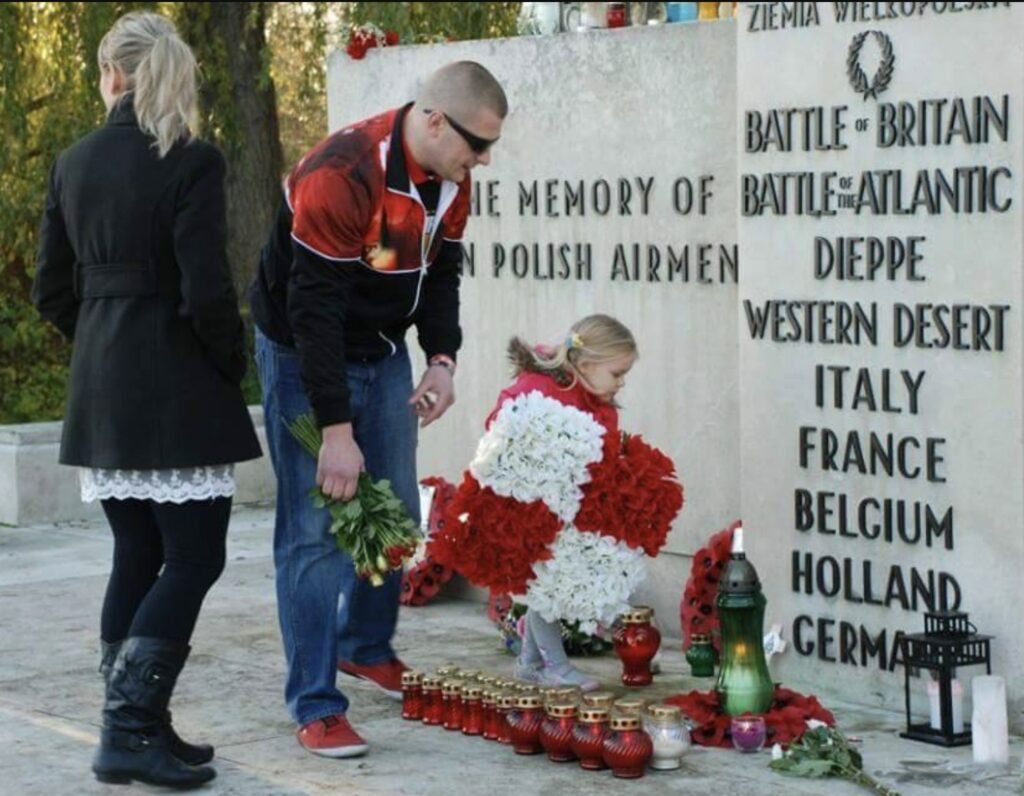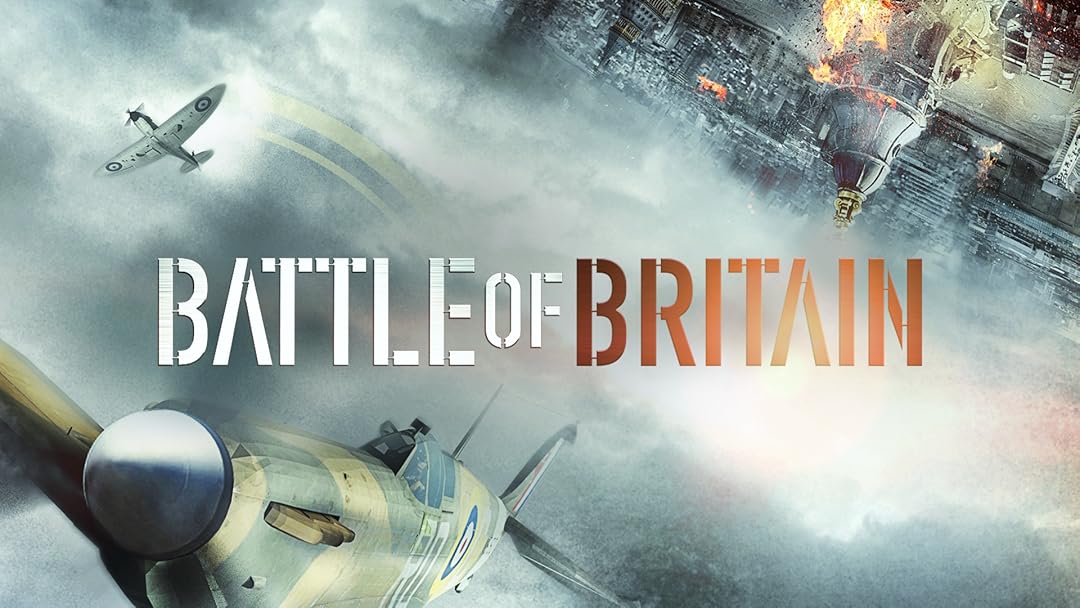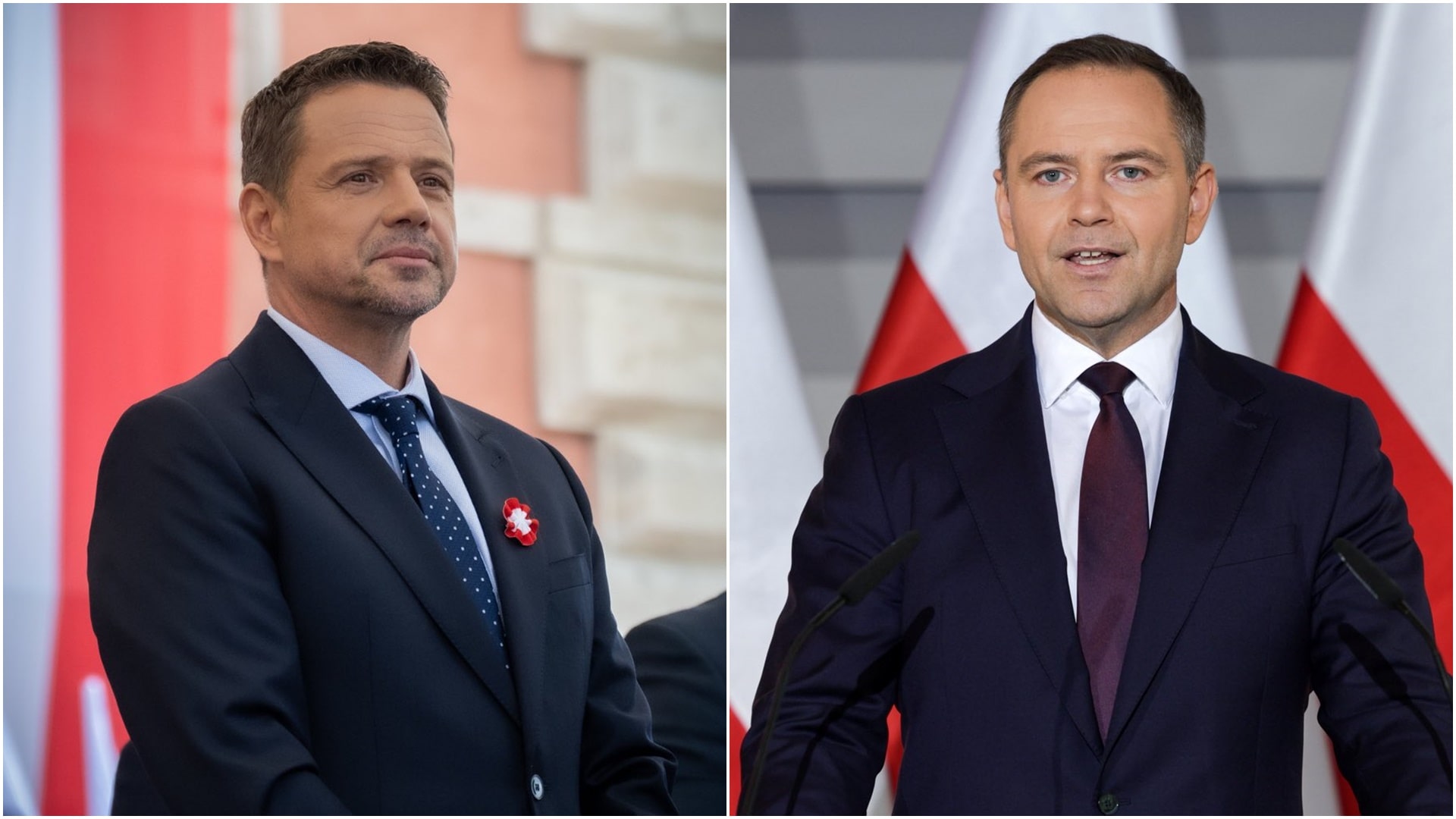The Battle of Britain stands as one of the most iconic moments in modern military history—a gripping tale of courage, sacrifice, and resilience. It was fought in the skies over England during the summer and autumn of 1940, and it marked a turning point in World War II. With the threat of Nazi Germany looming, the Royal Air Force (RAF) defended Britain from the seemingly unstoppable Luftwaffe. But what made the Battle of Britain extraordinary wasn’t just the courage of the British pilots; it was also the remarkable contribution of international airmen who came from across the globe, united in their fight against tyranny. Among them, the Polish pilots stood out for their bravery and tenacity, etching their names into the annals of history.
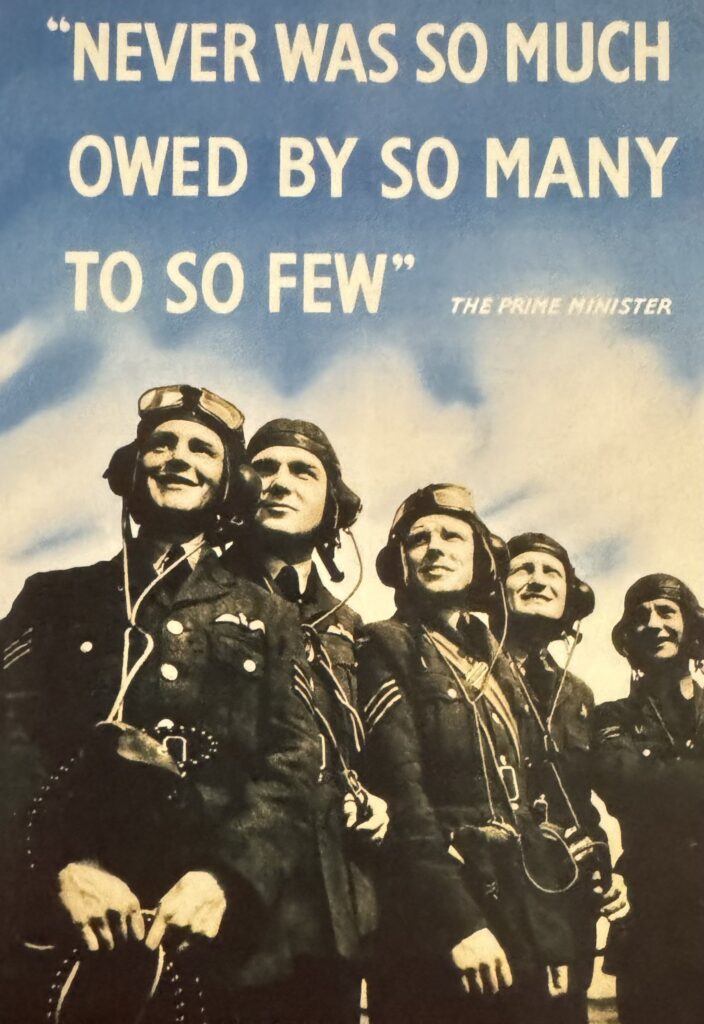
Britain’s Dark Hour: The Prelude to Battle
By the summer of 1940, much of Europe had fallen under Nazi control. France had capitulated, and Britain stood alone, defiant but vulnerable, facing the very real prospect of a German invasion. Hitler’s next move was to launch Operation Sea Lion, the planned invasion of Britain. But before the Germans could cross the English Channel, they needed to achieve air superiority. This set the stage for the Battle of Britain.
The Luftwaffe, under the command of Hermann Göring, launched a relentless campaign to destroy the RAF, targeting airfields, radar stations, and industrial centers. Britain, however, had one vital advantage: radar, which allowed the RAF to track incoming raids and scramble fighter planes at just the right moment. Yet, despite this technological edge, the situation was dire. The RAF was heavily outnumbered, and Britain desperately needed more pilots and aircraft.
The RAF: A Truly International Force
What many people often overlook is that the RAF during the Battle of Britain was not made up solely of British pilots. In fact, almost 20% of the fighter pilots who defended Britain’s skies came from overseas. Volunteers from across the British Empire—Canada, Australia, New Zealand, South Africa, and even Southern Rhodesia (now Zimbabwe)—joined the fight. But it wasn’t just Commonwealth nations that answered the call. Men from across Europe, including France, Belgium, Czechoslovakia, and Poland, also flocked to Britain, determined to continue the fight against the Nazis after their own countries had fallen.
In total, the RAF fighter command during the Battle of Britain included pilots from at least 13 different countries, making it a truly international force. These men fought not only to defend Britain but also to liberate their homelands from the iron grip of Nazi occupation.
The Indomitable Polish Pilots
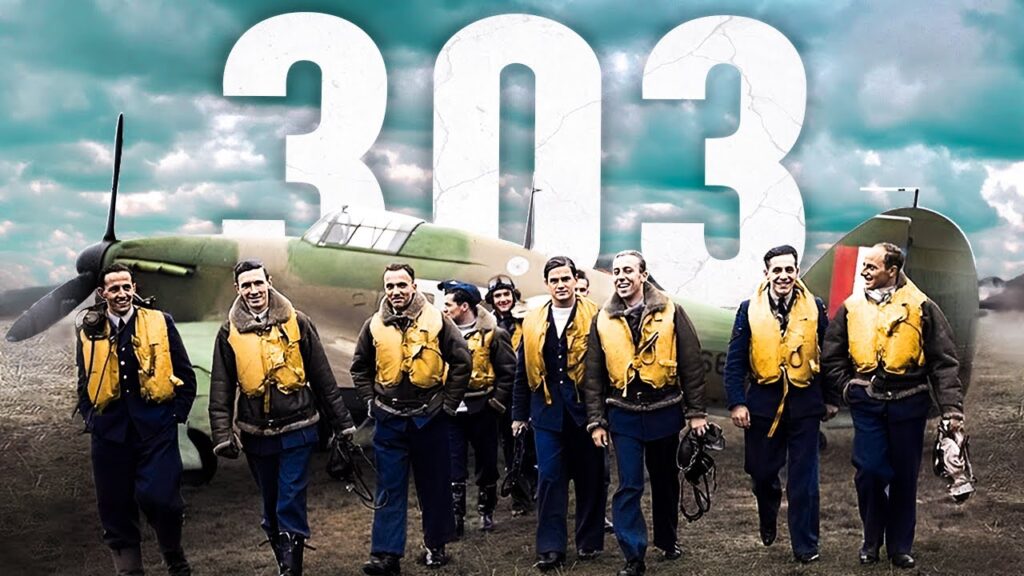
Among the international pilots, the Polish airmen were among the most celebrated for their extraordinary bravery and skill. After the fall of Poland in 1939, many Polish pilots made their way to France, and when France fell, they continued on to Britain. These men had already experienced the brutal might of the Luftwaffe, having fought valiantly in the skies over Poland and later France. By the time they reached Britain, they were battle-hardened and eager for revenge against the Nazis.
However, their integration into the RAF was not without its challenges. Initially, there was skepticism about the Polish pilots’ ability to communicate effectively and follow RAF procedures. But once they took to the skies, any doubts were quickly dispelled. The Polish pilots proved to be exceptionally skilled, fierce, and aggressive in combat, earning the respect of their British comrades and the admiration of the public.
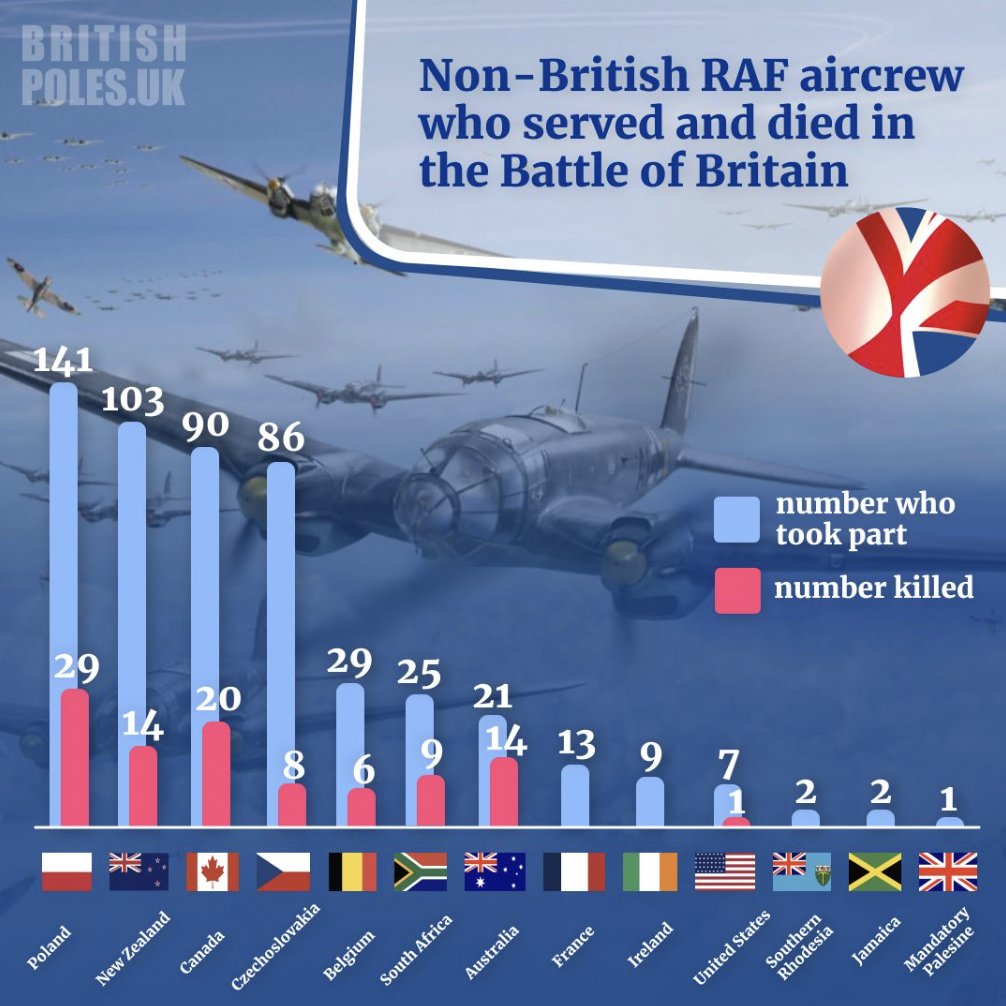
The most famous of the Polish units was No. 303 Squadron, which became one of the top-performing squadrons during the Battle of Britain. Based at RAF Northolt, the squadron was composed mostly of Polish pilots, with a few British officers acting as flight leaders. Despite joining the battle later than other units, No. 303 Squadron quickly made a name for itself, shooting down more enemy aircraft than any other squadron in the RAF during the Battle of Britain. By the end of the battle, No. 303 Squadron had shot down 126 enemy aircraft, a remarkable achievement given their smaller size and the relatively short time they had been in action.
One of the most famous Polish pilots was Squadron Leader Witold Urbanowicz, the commander of No. 303 Squadron, who personally shot down 15 German planes during the battle. Another legendary figure was Sergeant Josef František, a Czech pilot who flew with the Poles and became the top ace of the Battle of Britain, with 17 confirmed kills.
In total, 145 Polish pilots fought in the Battle of Britain, and their contribution was immense. They accounted for an impressive 203 enemy aircraft destroyed, and they earned a reputation for being some of the most daring and determined pilots in the skies.
A Brotherhood of Nations
While the Polish pilots garnered much of the spotlight, the Battle of Britain was fought by a coalition of many nationalities. The Czechoslovakian pilots were another notable group, with 88 airmen flying for the RAF during the battle. Like the Poles, the Czechs and Slovaks had experienced the loss of their homeland, and they fought with incredible determination to free their country from Nazi rule. One of the standout Czechoslovakian squadrons was No. 310 Squadron, which also achieved remarkable success in the skies over southern England.
Other notable contributors included pilots from Belgium, who had fled after their country was overrun, and French pilots who continued the fight after the fall of France. Canadian pilots, too, played a significant role, with more than 100 Canadians flying in the battle. Australia, New Zealand, and South Africa also sent men to join the fight, demonstrating the solidarity of the British Empire in Britain’s hour of need.
By the time the Battle of Britain ended, 574 non-British pilots had taken part in the defense of the country. They came from 13 nations, including:
- Poland: 145 pilots
- New Zealand: 127 pilots
- Canada: 112 pilots
- Czechoslovakia: 88 pilots
- Belgium: 29 pilots
- Australia: 32 pilots
- South Africa: 25 pilots
- France: 13 pilots
- Ireland: 10 pilots
- The United States: 7 pilots
- Southern Rhodesia (Zimbabwe): 1 pilot
- Jamaica: 1 pilot
- Barbados: 1 pilot
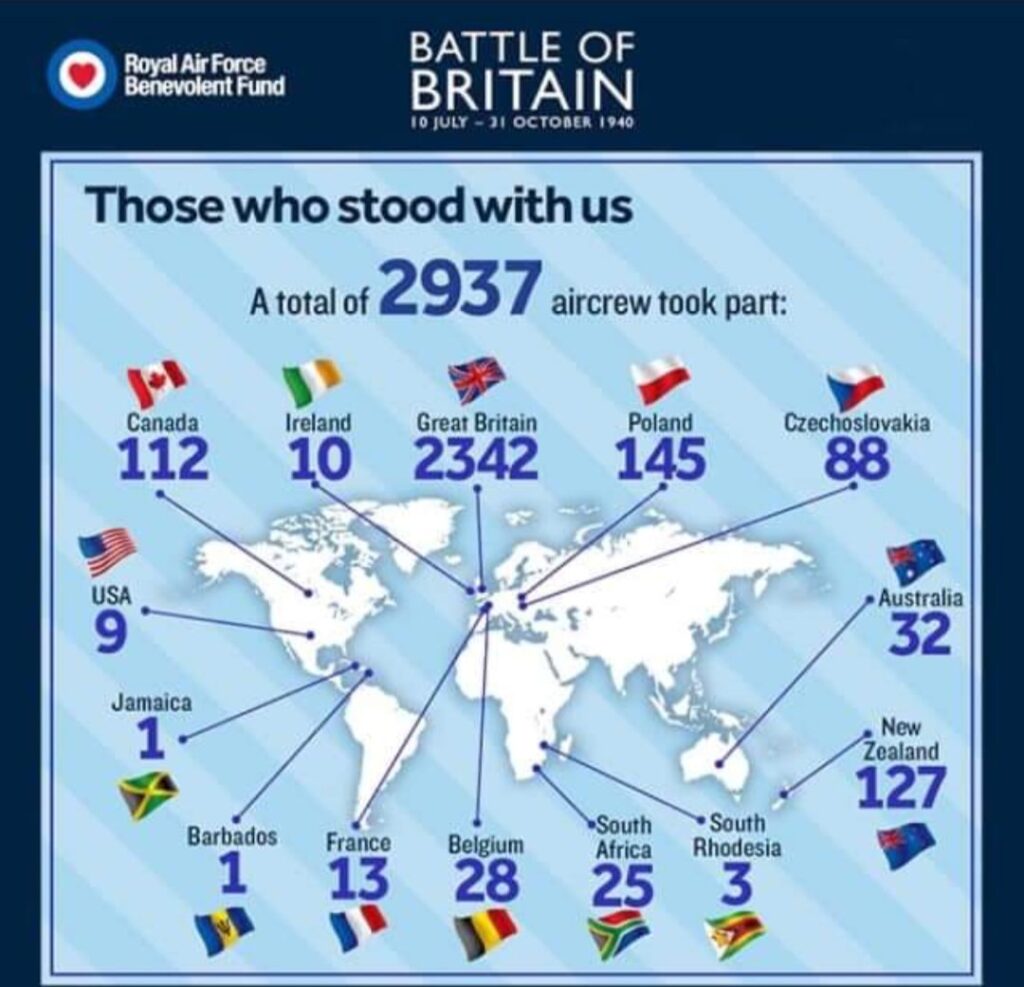
These men, hailing from different countries, cultures, and backgrounds, were united by a common cause: to stop the Nazi war machine and defend the freedoms of the world. The Battle of Britain wasn’t just a British victory—it was a triumph of international cooperation and brotherhood.
Victory in the Skies
By October 1940, the Luftwaffe had suffered heavy losses and was unable to gain the air superiority it needed to launch an invasion. The RAF, despite being outnumbered, had held firm. Thanks to the bravery and skill of the pilots—British and international alike—Hitler’s plans to invade Britain were thwarted. The Battle of Britain became the first major defeat of the Nazis in World War II, and it was a turning point in the war.
The sacrifice, however, was great. Over 500 RAF pilots lost their lives during the battle, including many from the international ranks. But their courage ensured that Britain remained free, and their legacy would live on. Winston Churchill famously said of the RAF pilots who fought in the Battle of Britain: “Never in the field of human conflict was so much owed by so many to so few.” These words are a testament not only to the British pilots but also to the men from across the world who fought alongside them.
The Legacy of the Polish Pilots and the International Heroes
The contribution of the Polish pilots in the Battle of Britain is still remembered with deep gratitude in both Britain and Poland. Monuments and memorials to their bravery stand as reminders of their vital role in securing victory. In 1948, the Polish War Memorial was erected in London to honor the Polish airmen who fought in the RAF during World War II, and it remains a symbol of their courage and sacrifice.
Today, the Battle of Britain is remembered as one of the most important events in British history. But it is also a story of international unity and the remarkable contribution of men from many nations who came together in a desperate hour to fight for freedom.
The Battle of Britain was not just a victory of planes and pilots—it was a victory of the human spirit, of resilience, and of the unbreakable bond between nations fighting for a common cause. The skies over Britain in 1940 were filled not just with Spitfires and Hurricanes but with the hopes and dreams of a world yearning for peace and freedom. And thanks to the bravery of those who fought, those hopes and dreams lived on.
